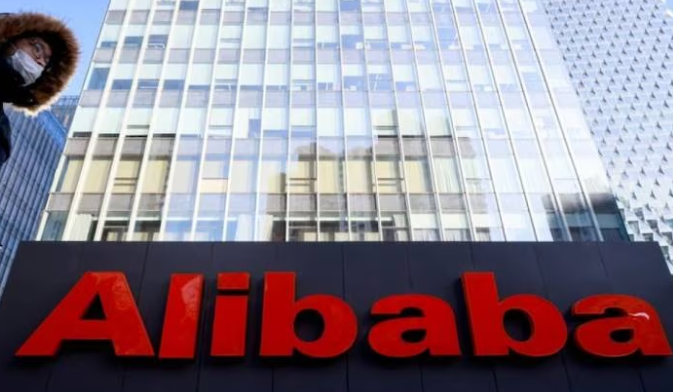
Alibaba Disappointing Revenue Triggers $25 Billion Buyback, Fails to Galvanize Investors
Alibaba Disappointing Revenue Sparks $25 Billion Share Buyback, Fails to Ignite Investor Confidence
Ailing Alibaba recently made headlines with the announcement of a $25 billion share buyback program, a strategic move aimed at mitigating the aftermath of its disappointing revenue performance in the December quarter. Despite this effort to shore up investor confidence, the company’s shares initially soared by over 5% in pre-market trading, only to reverse course shortly afterward, failing to impress investors as anticipated.
The decision to initiate the share buyback program, now totaling $35.3 billion and slated to continue until March 2027, underscores Alibaba’s determination to restore faith in its business outlook and cash flow. With the stock experiencing a 5% drop following the release of its earnings report, the company swiftly moved to reassure stakeholders of its confidence in the future trajectory of its operations and financial health through this substantial repurchase initiative.

Alibaba’s struggles throughout 2023, including its significant corporate restructuring efforts, marked a challenging period for the e-commerce behemoth. The decision to divide the company into six distinct business groups, each empowered to seek external funding and pursue independent public offerings, signaled a profound shift in its organizational structure. Additionally, key leadership changes saw company veteran Eddie Wu assume the role of chief executive in September, adding another layer of complexity to Alibaba’s transformative journey.
The fiscal third-quarter earnings report unveiled a revenue of 260.35 billion Chinese yuan ($36.6 billion), slightly missing market expectations of 262.07 billion yuan. This marginal shortfall in revenue, coupled with a 69% year-on-year decline in net income to 14.4 billion yuan, attributed to various factors including mark-to-market adjustments in equity investments and reduced operational income. Notably, impairments in ventures such as the video streaming service Youku and the supermarket chain Sun Art contributed significantly to this downturn.

The challenging macroeconomic landscape in China, compounded by consumer sluggishness, further compounded Alibaba’s woes. Despite efforts to revitalize key revenue drivers such as the Taobao and Tmall e-commerce platforms, which experienced a modest 2% year-on-year growth, and the cloud computing division, which saw a 3% rise in sales, the company faced headwinds in these core segments. However, Alibaba’s international commerce business, highlighted by platforms like AliExpress and Lazada, emerged as a bright spot, boasting a remarkable 44% year-on-year revenue surge to 28.5 billion yuan.
In response to these challenges, CEO Eddie Wu reiterated Alibaba’s commitment to bolstering growth in e-commerce and cloud services, prioritizing enhancements in user experiences and market leadership. While the company remains open to exploring separate financing avenues for its business units, it exercises caution in navigating prevailing market conditions.

The recent corporate restructuring initiatives, coupled with the unexpected departures of key figures such as Daniel Zhang, further underscored the turbulence Alibaba faced. The strategic emphasis on fostering synergies across its business units reflects a concerted effort to maximize the overall value of the conglomerate, with potential spinoffs and external financing endeavors subject to meticulous market assessment and strategic timing considerations.
Alibaba’s $25 billion share buyback program serves as a testament to its proactive approach in addressing investor concerns amidst challenging operational and economic conditions. As the company navigates these turbulent waters, its resilience and strategic agility will be critical in charting a course towards sustained growth and shareholder value creation in the evolving global landscape of e-commerce and technology.

Amidst the evolving landscape of e-commerce and technology, Alibaba faces a pivotal juncture in its journey. The $25 billion share buyback program, emblematic of its commitment to fortifying investor confidence, underscores a broader strategy aimed at navigating the intricacies of the market terrain. As the company grapples with the fallout from its revenue shortfall and endeavors to realign its operational priorities, key insights emerge into the multifaceted challenges and opportunities that lie ahead.
The decision to undertake the monumental share repurchase initiative emanates from a strategic imperative to address the immediate repercussions of the revenue setback. By bolstering its financial position and signaling confidence in its long-term prospects, Alibaba aims to assuage investor concerns and stabilize its stock performance. Yet, the initial market response, characterized by fleeting optimism followed by a retreat in share prices, underscores the complex interplay of sentiment and market dynamics shaping Alibaba’s trajectory.
Against the backdrop of Alibaba’s tumultuous 2023, marked by sweeping corporate restructuring and leadership transitions, the company finds itself at a critical inflection point. The delineation of six distinct business groups heralds a new era of organizational agility and strategic focus, empowering each entity to chart its course amidst evolving market dynamics. Concurrently, the appointment of Eddie Wu as chief executive injects a sense of continuity and stewardship amid the winds of change sweeping through Alibaba’s corridors.
For the latest updates-click here.


